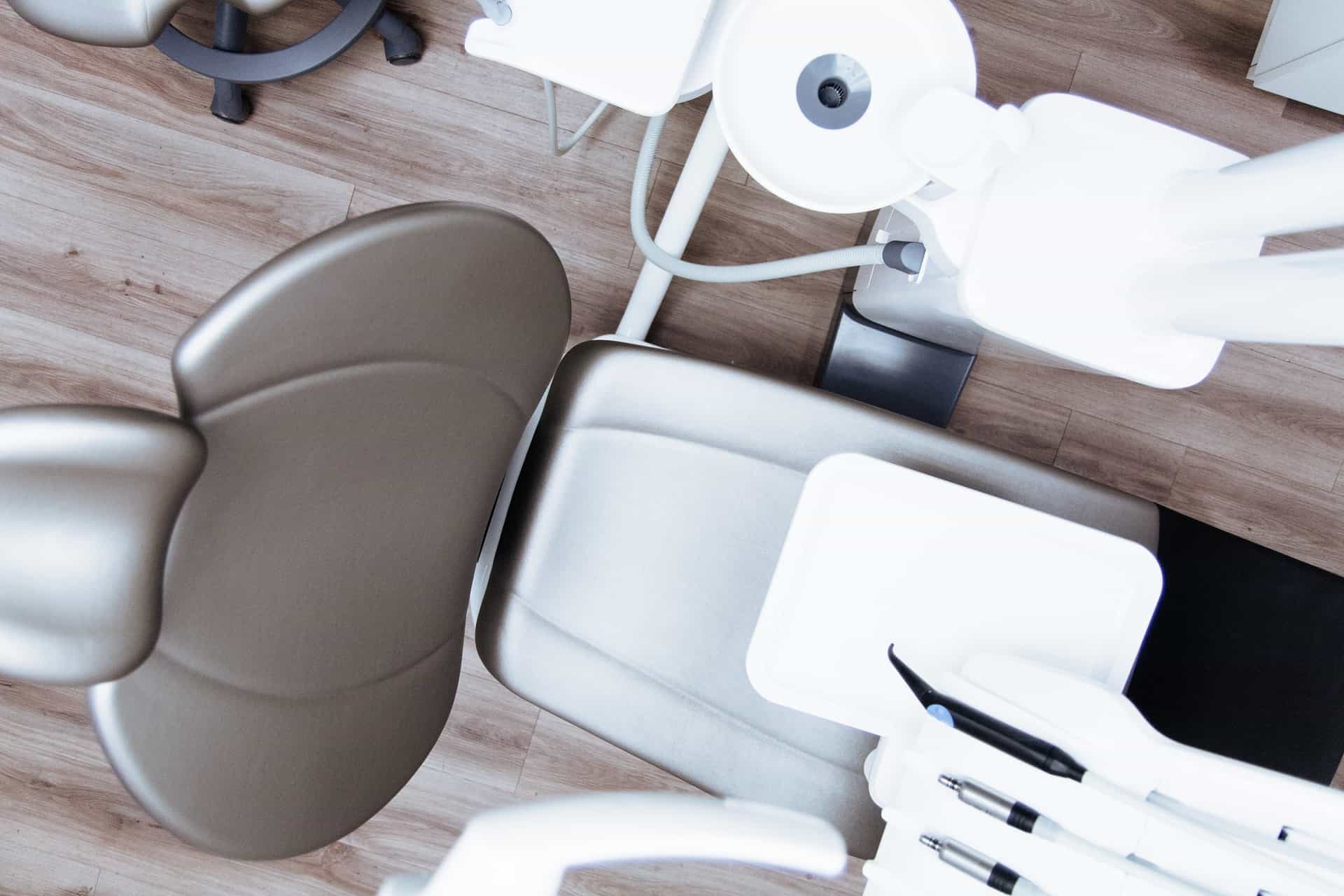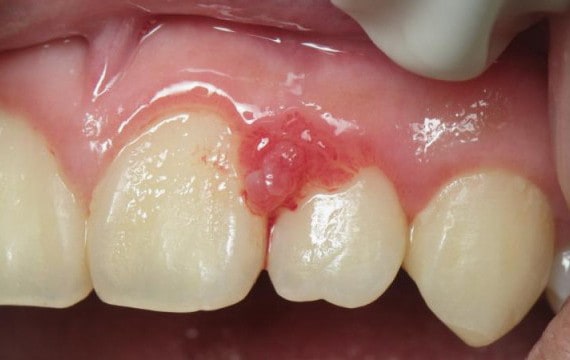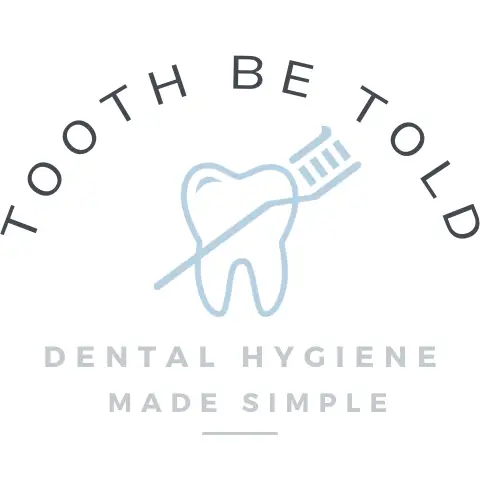
As a dental hygienist, I treat all people with varying medical conditions, including pregnancy. For my pregnant patients, they often ask me if it is okay to lay on their back to have their teeth cleaned and what trimester is okay or which trimester is best to have their teeth cleaned in.
It is okay to lay on your back while having your teeth cleaned. After the third trimester, time laying on the back should be reduced, and the teeth may have to be cleaned in a more upright position. Avoiding compression on the inferior vena cava is important to prevent supine hypotensive syndrome.
Oral health is so important to our overall health and even greater for those who are pregnant. Dental hygiene appointments should not be avoided during pregnancy.
In this post, I go over why is it okay to lay on your back during dental hygiene treatment, and I also delve into tips to get comfy in the dental chair, which trimester is best, what you should discuss with your dental professional about being pregnant and complications that can arise from poor oral health while pregnant.
Laying on your back to have your teeth cleaned, is it okay?
Laying on your back in the dental chair is completely fine, especially because you are awake, and if you become uncomfortable, you can move and reposition your body. Also, dental cleaning appointments do not usually last over an hour, so it is a short period of time lying on your back.
Being pregnant makes you more susceptible to postural hypotension due to vasomotor instability. This means that blood pressure can drop quickly when you go from a lying-down position to sitting up and standing.
You may experience some lightheadedness if you sit up too fast, which can be prevented by asking your dental professional to sit you up slowly and let you sit up for a couple of minutes before you stand out of the dental chair.
The main concern for laying on the back for too long while pregnant is that the uterus and baby will press down and compress the inferior vena cava, but laying in the dental chair should not aggravate it. Again, this is because dental hygiene treatment is usually not over 45-60 minutes (of you lying in the chair), and you are awake and can move freely if you are uncomfortable.
After 35 weeks, it may be best to postpone dental hygiene treatment only for the reason of comfort. As the pregnancy progresses, comfort level usually decreases.
When you are in the late half of the third trimester (after approximately 35 weeks), supine hypotensive syndrome can occur when the lower portion of the vena cava is compressed.
Read now: How Dental Hygienists Clean Your Teeth
The vena cava is the largest vein in the entire body, and the inferior portion carries the blood from the lower and middle sections of the body (legs, pelvic area and organs) to the heart.
When this vein is compressed, it restricts blood from going to the heart and can cause supine hypotensive syndrome which includes symptoms such as;
- hypotension (feeling faint and lightheaded, dizzy)
- tachycardia (heart rate over 100 beats per minute)
- diaphoresis (sweating)
- nausea
- vomiting
- pallor (becoming pale)
- weakness
You can read more info about inferior vena cava compression/supine hypotensive syndrome here and here
and here .
.
6 Tips for getting comfortable in the dental chair while pregnant
For my pregnant patients, their comfort level is a huge priority for me.
- Tell your dentist/hygienist when you need a break
- Spread out appointments so you are not in the chair for as long
- Book appointments for times when you feel the least nauseous
- Roll on your left side, and place a pillow/rolled blanket between the thighs to elevate the right hip about 15 degrees
- Inform your dental professional how far back you feel comfortable laying
- Floss and brush before you go to get your teeth cleaned, it will make the appointment shorter, which means less time on your back!
Important Tip: Never brush your teeth right after vomiting, as the tooth surface becomes very soft from the stomach acid and can be eroded away by brushing. Instead, rinse with water right away and brush your teeth 30-60 minutes after vomiting.
Can you get your teeth cleaned in the first trimester?
Teeth can be cleaned by a dental professional in each trimester of pregnancy safely, including the first trimester in a healthy pregnancy. However, the best trimester to have your teeth cleaned and a dental check-up is not the first trimester, mostly because of feeling unwell and experiencing nausea and vomiting.
Read now: Scaling and Polishing: How Long a Typical Dental Cleaning Is
The best trimester to have teeth cleaned and dental hygiene treatment
The best trimester to have dental hygiene treatment, including teeth cleaning, is the second trimester. The 14th to the 20th week of pregnancy is the best time to have the teeth cleaned because organogenesis is complete, and the risk of pregnancy loss is much lower than in the first trimester.
Also, by the second trimester, nausea and vomiting commonly subside, so tolerating a dental appointment will be much easier!
Fact: Being pregnant does not take calcium from your teeth
When should dental hygiene treatment be postponed if you are pregnant?
For complicated pregnancies, medical clearance from your doctor is needed for routine dental and dental hygiene treatments. This includes current medical concerns such as high blood pressure brought on by pregnancy that exceeds 140/90 mmHg, gestational diabetes, history of premature labour, and/or a chance of spontaneous abortion.
Dental hygiene treatment should also be postponed if you have not yet accessed prenatal care!
Do you need to tell your dentist/dental hygienist you are pregnant?
It is crucial to inform your dental professional if you are pregnant because there are procedures we will not do, and we will make modifications to your treatment plan.
For patients who are pregnant, taking radiographs (x-rays) and doing fluoride treatments are refrained from, unless absolutely necessary! For example, if you have an infection present (abscess), a radiograph (x-ray) will need to be taken, and it will need to be treated right away to avoid complications and further infection.
Please don’t avoid your dental appointments if you are feeling well enough and have been cleared by your medical doctor. Your oral health should be assessed, and calculus (tartar) should be removed to help prevent and heal inflammation (gingivitis/gum disease) in the tissues of the mouth.
Also, there is an abundance of information that I discuss with my patients about pregnancy and its relation to oral complications, why oral hygiene is so important and all about infant and baby oral hygiene routines that should be started early.


Poor oral health can lead to pregnancy complications and vice versa
Your oral health influences your whole body’s health, and often pregnancy’s effects on the mouth are overlooked and forgotten. Being pregnant can be overwhelming with all the information that is given, that I can see why oral health is often pushed back!
When I have a patient in my chair who is thinking about getting pregnant, pregnant or has just given birth, I always discuss with them the connection between pregnancy and oral health and infant oral care.
Gingivitis (PAG – pregnancy-associated gingivitis) and periodontal disease and pregnancy
All those hormones and changes in your body when you are pregnant have a direct impact on the health of the tissues surrounding the teeth, including the gums, bone, and ligaments holding the teeth into the socket.
When you are pregnant, the immune system goes into hyperdrive, which means that your body is going to attack the bacteria in the mouth more aggressively, and a full-blown war will break out.
Brushing and flossing are even more of a necessity when you are pregnant! To control the immune response of your body, you need to reduce the number of bacteria your body needs to fight against. If you haven’t already switched to using an electric toothbrush, you should do that ASAP. Electric toothbrushes make a night and day difference!
Read now: 12 Benefits of Using an Electric Toothbrush
Another oral health-pregnancy issue is the relationship between periodontal disease and its link to preterm birth and low birthweight. The inflammatory markers in the bloodstream caused by the bacteria of periodontal disease can trigger the onset of labour prematurely. source
About 40% of pregnant women have periodontal disease
https://www.cdho.org/Advisories/CDHO_Factsheet_Pregnancy.pdf
With gingivitis, the gum tissue in the mouth will start to appear fiery red, puffy and sensitive to touch. If the inflammation is not combatted with good oral hygiene, pregnancy tumours can occur in the gums, also known as pyogenic granulomas.
Fact: Pregnancy does not cause tooth loss!
Pregnancy tumour aka pyogenic granuloma
The word tumour can be a scary word, but in this case, it’s only used because a tumour can be described as a mass of tissue that has no purposeful function. A pregnancy tumour has no relation to cancerous tumours or spread to any other part of the body. It is strictly a benign mass of tissue that most commonly goes away after giving birth.
Only about 1% of pregnant women will develop a pregnancy tumour. It is caused by the body responding to gingivitis present in the gums. If you think you may have a pregnancy tumour, you should seek care from a dental professional as soon as you can. You will need to focus on your oral care and have a dental cleaning to remove any existing calculus/tartar build-up.
Increased caries (tooth decay/cavities)
Pregnant women have a higher risk of tooth decay because, during pregnancy, the saliva becomes more acidic, contributing to the mouth being in an acidic state for longer. The more acid the mouth, the higher incidence of caries/tooth decay.
Also, we all know the stereotypical cravings that women have when they are pregnant. And sugary foods make up a big portion of these cravings. The more sugar/simple carbohydrates we eat, the more it feeds the bacteria in our mouth, and the bacteria excrete acid.
Again, I know I sound like a broken record, but flossing and brushing will help SO much at reducing decay and gum disease while you are pregnant!
I really hope that the information in this post has helped you in some way!
Have a wonderful day,
Holly 🙂
